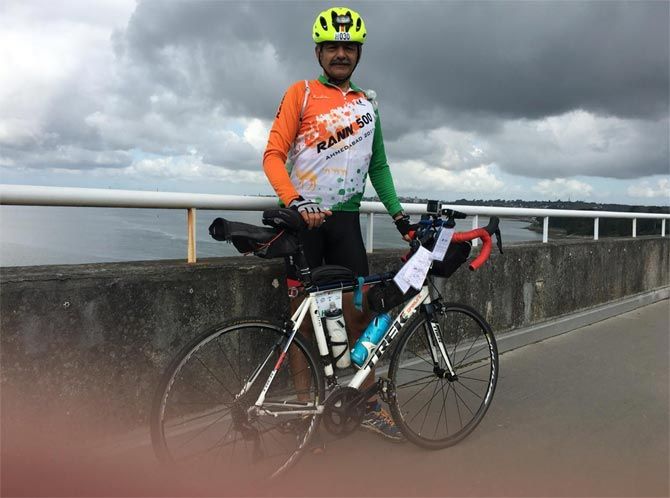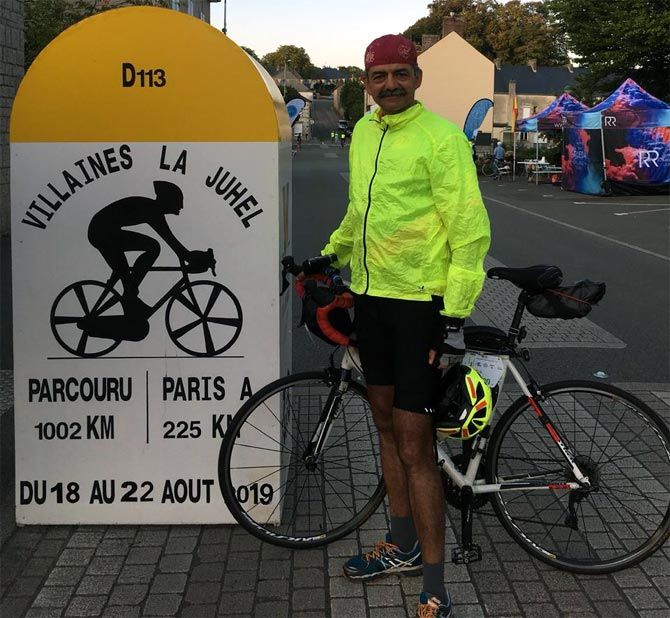The Paris-Brest-Paris is France's oldest long-distance cycling event that began in 1891. The event starts from Paris, the cyclists go up till Brest and then come back, covering a total of 1200kms.

Fresh from his maiden stint in the excruciating Paris-Brest-Paris circuit, Indian Army's Lieutenant General Anil Puri is keen to accomplish the feat again in the next edition of the long-distance cycle event.
The Paris-Brest-Paris is France's oldest long-distance cycling event that began in 1891. The event starts from Paris, the cyclists go up till Brest and then come back, covering a total of 1200kms.
The 56-year-old officer became the first serving general of the Indian Army to complete the event last month.
"It was a very painful experience but as every cloud has a silver lining I am very satisfied by my achievement. I learnt many life lessons and it was a truly humbling experience for me," Puri said.
Elated by his performance Puri, who was unable to participate in the 2015 due to some prior commitments, is aiming to compete in the next edition with his wife by his side.
"My wife is an eye surgeon in the army. We both cycle together. Both of us are planning to participate in the event in the next edition. That's the plan for now."
Puri joined the army in 1984. He is currently posted at the headquarters in Delhi and is working in the chief secretariat. He took up cycling four years ago in 2015 at the age of 51.
"I ran out of steam playing other games so I took up cycling. It was a gift I gave to myself at 51."
Since then his cycle has a pride of place in his living room.
"Earlier my cycle used to be kept under the staircase. Now it sits in my living room."

The 19th edition of the PBP saw participation from 6500 amateur cyclists. India fielded 367 participants which included six cyclists from the defense forces.
To qualify for the event, riders have to complete a series of brevet rides, organised across the world under the regulations of Audax Club Parisien, the organisers of PBP. Brevets are long distance cycling events starting from 200 km onwards with time limits.
In the main event, every participant is required to opt for a time slot for completing the race in either 80, 84 or 90 hours.
"I chose the 90 hours slab and I was able to cover the route in 90 hours 25 minutes. Due to a last-minute change in route, everyone was given an hour extra," Puri explained.
A participant has to factor in sleep, food, mechanical failures, and other unforeseen incidents on the route which includes significant increase in elevation and drop. The total elevation is about 11,566 m which is well above Mt Everest.
"I remember there was a Japanese participant who just slid from his cycle as he slept while cycling. You have to deal with everything on your own. You don't have any help available except at the control points."
"It wasn't easy, we were constantly going up or down. While coming down we were at speeds of 50km plus and while climbing up we are down to 5km. It was extremely cold at night and extremely hot during the day with headwinds all throughout the route," said Puri, who lost about 7kgs after the event.
For the next edition, Puri has decided to train more in the mountains in order to navigate the hilly terrain in France.
"The Indian terrain is very different from the actual route. It was only once I reached there that I realised we were under-prepared. Delhi has no mountains, we used to go the Gurgaon-
Faridabad road to train but next time I will definitely try to train more in the hilly areas."












 © 2025
© 2025